The clock is ticking towards the European Parliament elections. As always, political parties are running a tight ship, politicians are running campaigns and eurosceptics are animatedly running their mouth. With elections taking place every five years, 751 MEPs amongst the (currently) 28 Member States are to be elected to the European Parliament by EU citizens.
As for who the next Commission President will be, the so-called Spitzenkandidaten process has been used since 2014, on the basis of which each major European political party nominates one of their members as Spitzenkandidat (lead candidate). The candidate of the European political party winning most seats in the Parliament has the mandate to try to form a majority in the European Parliament after the elections. [1]
The Maastricht Debate: a democratic exercise ahead of the elections
If the lead candidates of the national parties to the European elections enjoy some visibility in national media, the Spitzenkandidaten are unfortunately less known by the citizens - which is a pity, as they are running for leading the European Commission. These candidates need to be seen, to be heard, and to confront their ideas. Yet, as in 2014, the national media do not seem very interested in giving them visibility.
That’s why on the 29th of April at Maastricht University, the European Youth Forum, the European Journalism Centre and Politico Europe joined forces to organise a concrete democratic exercise one month ahead of the 2019 European elections: the so-called Maastricht Debate between the Spitzenkandidaten. This debate was particularly designed for young people, and by young people. Indeed, ahead of the event, the organisers surveyed the students of Maastricht University to know which matters interested them the most. The three main topics discussed during the debate were thus: Digital Europe, Sustainable Europe and the Future of Europe.
Even though the European People’s Party did not deign to join the debate (Manfred Weber had “other commitments”), five other parties committed to play the democratic game and sent their lead candidates to the fiery debate: Bas Eickhout, representing the European Greens, emphasised the importance of a green and social Europe, Frans Timmermans focused on a need to eliminate borders on behalf of the European Socialists, Violeta Tomic of the European Left was passionate about fighting austerity, Guy Verhofstadt of the Liberals and Democrats promoted a stronger united Europe, and the arguments of Jan Zahradil, representing the European Conservatives and Reformists, revolved around respecting national differences.
Opening statements: an overview of the candidates’ core principles
In their opening statements, the five Spitzenkandidaten had one minute each to deliver a general overview of their ideas.
Jan Zahradil celebrated the fact that his country, Czech Republic, joined the EU 15 years ago. However, he also emphasised the disparities between the different EU member states, citing for example the difference in the average salary between The Netherlands and Czech Republic. He thus defended a “flexible Europe”, as “tailor-made solutions sometimes are necessary to cope with problems”. He believes that a “new balance” is needed between the EU and member States in order to move forward from the current deadlock.
Frans Timmermans praised freedom of movement and “borders which are no longer there”. He supported “dialogue over confrontation”, “equality over discrimination” and “a sustainable future over a fossil-fuel economy”. He pledged for the EU to address these challenges together along with the EU’s youth, and to “not give the nationalists any room”. Timmermans also paid tribute to Pedro Sanchez’ victory in Spain.
Guy Verhofstadt stressed that Europe is surrounded by rapidly expanding “empires” (China and India, the United States and Russia) in light of a new context of international relations. In order to face these great powers as a counterweight and remain a memorable continent and sphere of influence, Europeans must unite and Europe must adopt a more centrist stance, both from a political and military, economic and social point of view.
Violeta Tomic argued that nowadays the EU is a far cry from ideals of democracy, equality and justice. She said that whilst for bankers and stockbrokers, the economic and financial crisis is but a distant memory, this is different for the common people. Many are still suffering from the effects of austerity and they are worried about their children’s future. Thus, defending the interests of these individuals is essential.
True to his political party, Bas Eickhout immediately raised the climate change issue and described it as a challenge that we can only tackle at a European level. He emphasised the need for climate and environmental policies to “go hand in hand” with social policy. He defended a “green and social Europe” and “strengthening European democracy” whilst combating climate change.
A digital Europe
In the first section of the debate, candidates focused on a series of matters concerning the digital revolution and data protection, cyberattacks and online disinformation, and Europe’s competitiveness in front of American and Asian tech giants.
Jan Zahradil paid tribute to the work done by the EU in developing the digital single market, and considered that the EU has done well and is coping well with current issues. He believes that the European Commission should not act as a “government of Europe” but should help and assist the national governments. Indeed around 30 pieces of legislation related to digital issues such as protection of privacy and protection from cyber attacks have been adopted by the EU. Zahradil also reminded the audience that some objectives are yet to be achieved (such as the ePrivacy Directive). Overall, he highlighted the importance of not restricting freedom of speech and expression whilst fighting fake news and disinformation. In addition, Jan Zahradil considered that businesses should be taxed, but at the national level, not the EU one.
Contrary to Jan Zahradil, Bas Eickhout did not believe that Europe is on the right track. He highlighted the danger of “data monopolists” and the need for these companies to deliver services instead of making profit out of consumer’s data. He paid tribute to the fact that the EU managed to adopt legislation allowing our data to be protected, and especially the fact that – although tech giants were against this regulation – once it was actually adopted, they understood the need for it to be implemented not only at the European level, but also at the global one. He emphasised the need to strengthen the EU to enable it to tax companies, as “heroes providing transparency”.
Guy Verhofstadt addressed the need for more intense regulation, citing the General Data Protection Regulation (GDPR) but also the need to go further, especially with regard to tech giants such as Facebook. He also emphasised the importance of developing a European digital business. Indeed, the candidate even passionately brought a series of graphics to the debate which demonstrated the weight of American and Asian companies in comparison to European ones. As a response, a European regulator would provide an excellent pathway for Europe to create its own tech giants.
Contrary to Guy Verhofstadt, Frans Timmermans did not believe in there truly being a need for Europe to develop “its own Facebook”. Rather, the candidate denounced the fact that tech companies are using data we give them for free and are making billions of profit from it. Therefore, consumers need to know and control how their data is used, especially in light of potential Russian interference. Moreover, regarding the billions of untaxed profit made, the candidate stated that the companies who were making those profits had to be taxed. He also accused the member states of being very reluctant in this regard, although the Parliament was willing to go in the direction of taxing companies. Moreover, Frans Timmermans defended the idea to introduce a corporate tax rate of minimum 18% in the whole EU. Bas Eickhout and Violeta Tomic supported the idea, but Jan Zahradil and Guy Verhofstadt did not.
Violeta Tomic reminded the audience that today’s young generation is the first generation since WWII who lives in worse conditions than their parents. According to her, this is partly due to great corporations such as Google, Amazon and Facebook who avoid tax payments in countries where they actually operate. This money is taken away from funds for welfare, education, and a green transition and technology. Therefore, Tomic firmly believed in abolishing tax havens and implementing a fair taxation for all. Moreover, Violeta Tomic defended a Green New Deal to create new jobs, and to fight austerity and depression, all the while returning to her original point which revolved around the fact that Europe doesn’t need austerity measures but investments.
Moreover, the candidates all responded to questions concerning communication strategies in the EU. Proposals ranged across heightening media literacy from both Timmermans, Eickhout – who also focused on data protection – and Verhofstadt who criticised the Facebook algorithm’s flaw to display similar contents to the users, and stated that consumers needed other competition choices. Zahradil seemed to be more confident with the current situation, stating that he considered that young people are able to differentiate fake news from reality, a point which he developed based on his own personal experience of his youth in a communist regime. Feeling strongly about the subject, Tomic focused on the need to tackle fake news and hate speech.
A sustainable Europe: climate and environment
The second section of the debate focused on the climate and environment. The starting point was a question concerning which candidates supported the student climate strikes. All candidates answered positively, except for Jan Zahradil.
Jan Zahradil criticised the fact that the EU had already established climate objectives that they had not fully fulfilled yet but are already establishing new ones. More realistic actions are in order. Indeed, he recognised that if measures are taken in a hasty manner, they won’t help the young generation from disadvantages in the market. He evoked the yellow vests movement in France that raised after Macron came with only one fuel tax. Coming up with sustainable solutions that won’t be likely to trigger an economic disaster is necessary.
On the contrary, Violeta Tomic called for quick action against climate change. Dutifully following through with her party’s main stance, she doesn’t believe that it is possible to include the environment in neoliberal capitalism seeing as this logic only follows profit and not the people or environmental welfare. According to Tomic, another main problem concerns the lobbyists surrounding the Brussels walls.
Guy Verhofstadt considered that we need to change our approach to climate change from a defensive way to an offensive way. Indeed environmental standards in our trade deals are necessary, as are investments in specific activities for the future such as batteries. A small yet interesting squabble erupted when Bas Eickhout reminded Guy Verhofstadt that ALDE had voted in favour of trade agreement negotiations with the United States although they had decided to withdraw from the Paris Agreement, and quite blatantly reminded Verhofstadt to “put the money where your mouth is”.
Indeed, Bas Eickhout stated that even though all politicians are talking about climate change these days, what is truly needed is action. Eickhout stressed that climate actions need investment in many sectors such as new jobs, the economy and transport. His strongest argument may have been that the EU Commission is still giving subsidies to fossil fuels whilst what is really necessary is implementing the “polluter pays” principle. There is a need for regulation and this would have to start within the European Commission, Eickhout said.
Frans Timmermans addressed the responsibility to correctly uphold the UN Sustainable Development Goals and felt very strongly about the US President’s current stance on climate change, believing that the only region prepared and willing to tackle the issue would be Europe. Timmermans exhorted the young people to go vote if they are concerned about climate issues-this way they will have MEPs and a Commission President in favour of green policies.
The future of Europe: gender equality, social issues, solidarity
Similarly to the second section of the debate, the third one began with a show of hands based on whether or not candidates were in favour of a gender-balanced European Commission, considering that the President of the European Commission has the power to propose their team of Commissioners. All candidates raised their hand affirmatively.
Going on to issues concerning employment strategies, Jan Zahradil reminded the audience that the European Commission cannot exactly create jobs out of thin air but it can and should create conditions in which jobs will grow. However, trying to harmonise social systems would be problematic due to the fact that countries’ economies are so diverse. Bas Eickhout focused on the necessity of a green agenda in all measures taken, in order to ensure social justice. Guy Verhofstadt explored the need to increase labour mobility in Europe, considering that there are a high number of vacancies in Europe. Moreover, he believed that a minimum social security level must established, a level that has to be the same in all EU countries.
Frans Timmermans followed up on the point, explaining that 24 legislative proposals were adopted by the EU as part of a social pillar. Progress has been being made but not fast enough. In order to construct a decent social system, trade unions must gain more power and a minimum wage in all EU countries is necessary, which should be approximately 60% of the median wage. Finally, Violeta Tomic stated that there were high unemployment rates across youth and a minimum wage at the EU level would thus be essential for all. Particularly focusing on far-right parties, Tomic associated their rise with the fact that these parties exploit unstable economic conditions in order to gain supporters, thus turning citizens against the EU. Therefore, the EU’s main scope should be to combat poverty and unemployment in order to ensure full employment and complete social justice.
Final comments
At the full disposal of the audience and backing proposals and statements with relevant facts and statistics, the Spitzenkandidaten’s democratic, intellectual and communicative approach clearly disproves europhobic claims that common EU citizens can only stand back and watch “unelected bureaucrats” take power. Still, misunderstanding is rather widespread, reflecting a clear misinterpretation of the complex but democratic decision-making procedures present in the EU.
In the final stage of the Maastricht Debate, candidates were faced with a question from the audience on what their party’s boldest proposal was. Inspired by his constituents, Zahradil promoted a looser and more flexible European Union which would give enough space to its Member States to pursue their own policies whenever necessary.
Eickhout and Tomic mainly focused on economic matters. Eickhout’s proposal was to make the eradication of poverty and the promotion of sustainable development goals the lead in all policies, including trade policies. Meanwhile, Tomic recognised that the EU was the biggest trade market and it should never be associated with any work related to child exploitation, slavery or environmental destruction, thus demonstrating a necessity for the EU to develop stricter policies on what it is importing.
Verhofstadt and Timmermans reflected on migration policies, and Verhofstadt criticised a lack of European migration policies at a Member State level, recognising that populists and nationalists exploited this point to gain more votes. Timmermans directed his comments to the youth and explained how the future of Europe lies with bringing reconciliation between Europe and Africa in order to deal with the migration crisis whilst retaining our feeling of humanity, and in order to develop two continents together.
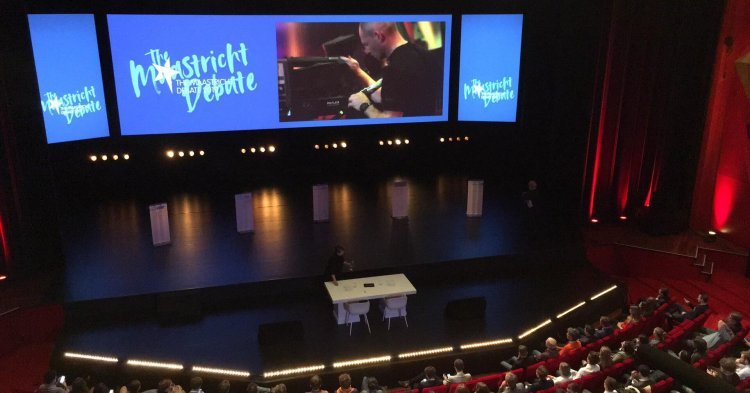


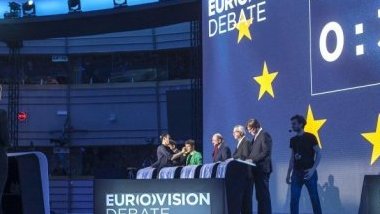
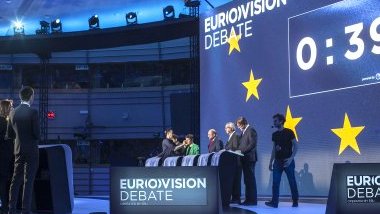
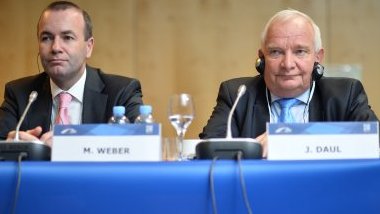
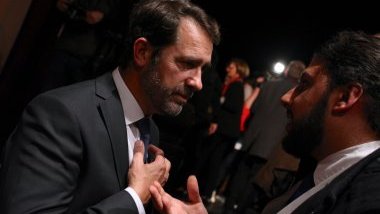
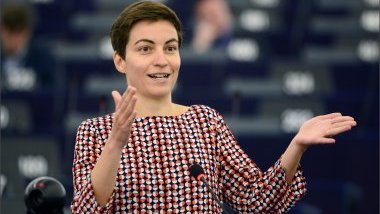
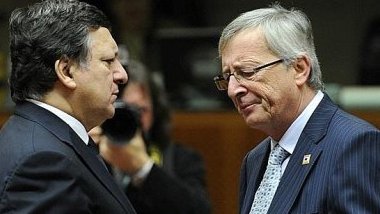
Follow the comments: |
|
